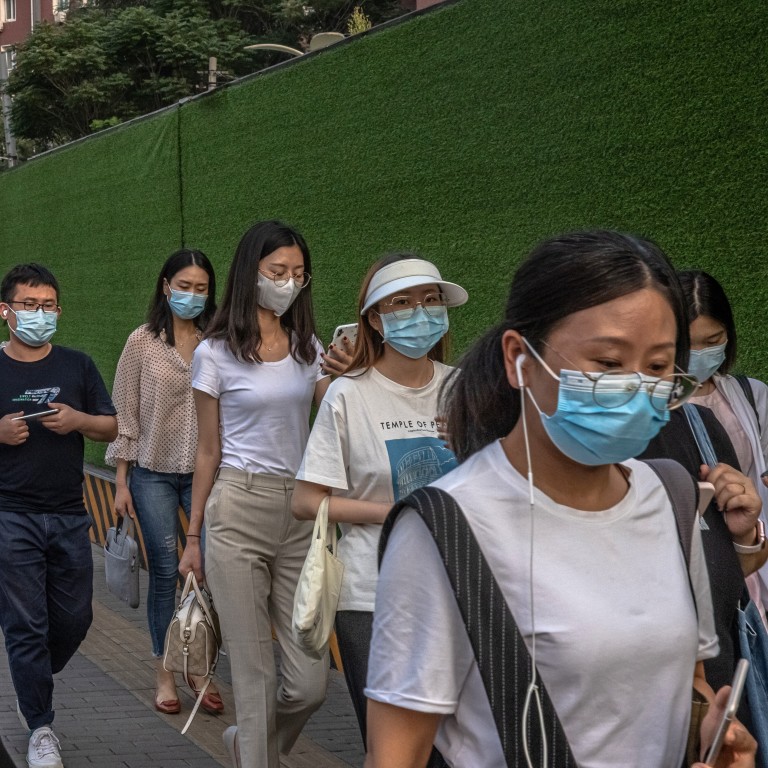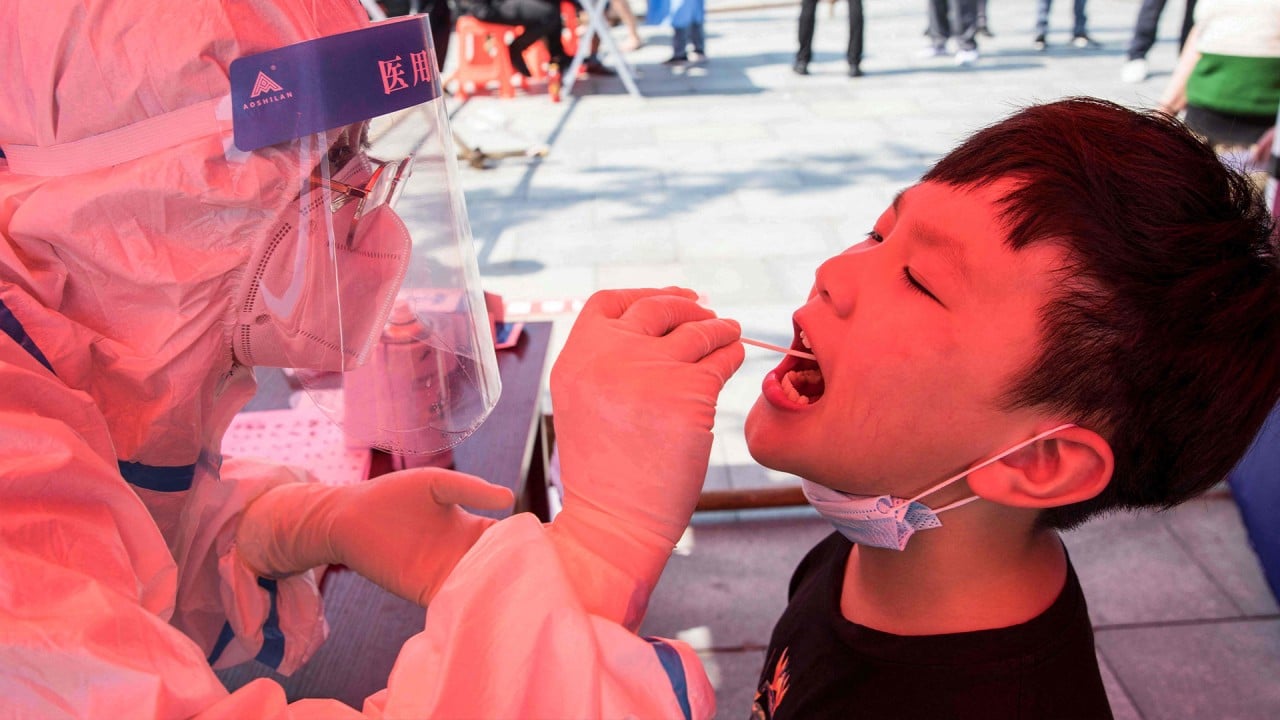
Coronavirus: Chinese health experts call for change in zero-tolerance strategy
- ‘Serious and systematic discussion’ is needed as other nations start to open up, Peking University academic tells webinar
- China CDC chief epidemiologist says Beijing should learn from experiences elsewhere, particularly in lead-up to the 2022 Winter Olympics
Liu Guoen, director of the Peking University China Centre for Health Economic Research, said it would be difficult for the country to achieve zero cases given the rapid spread of the Delta variant. He told a webinar organised by tech firm Baidu on Friday that “serious and systematic discussion” was needed to decide whether to “adjust and optimise the current strategy”.
“The vast majority are mild cases [in China’s latest outbreak], which should not have caused so much panic and pressure,” Zeng said. “Staying at zero cases is absolutely impossible from the perspective of the whole world … and other countries will not wait for zero cases before they open their borders.”

02:23
Covid-19 returns to China’s Wuhan as Delta variant spreads to 10 provinces
CDC epidemiologist Zeng said more people needed to get vaccinated as mass immunisation remained the key to adjusting pandemic controls, and development of new vaccines should be pushed forward.
He said China would eventually reopen its borders as other countries were doing, but it was important to reach a consensus on when it would be safe to do so.
“We should also learn from the experience of countries such as Britain, Israel and Singapore … to see how much resurgence [in infections] has occurred, whether the situation has improved … and whether there is public support,” Zeng said.
He said this was important ahead of the 2022 Winter Olympics – to be held in Beijing in February – when a different approach may need to be taken. “This will be a challenge for the capital city and one we need to deal with well,” Zeng said. “[It will also be] a process of improving our ideas.”

